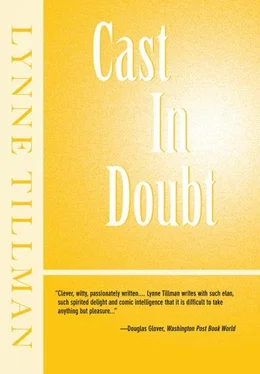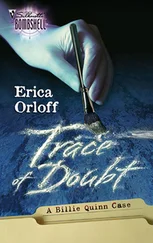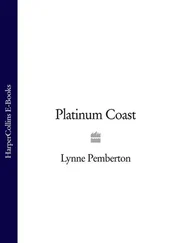For Gwen’s sake, though she protested she didn’t want one, unless she could cry at it, I held a party in her honor. Everyone attended. Yannis returned home, to me, a night or two before the grand event, but with a difference that I could not fathom. As I was any minute expecting Roman to appear, I took Yannis’ alienation in stride. He helped me shop and cook, and just to spite Gwen I served more food than anyone could eat. I hasten to add, there were leftovers.
On the night of the party, at eight, the entire cast of characters began arriving, with the exception of Stephen the Hermit, whom I had not invited, and knew to be, though the others didn’t, on the other side of Crete. Alicia was resplendent in a pea-green sari. Wallace and his Dutch lover, Brechje, brought fruit and bread; I assumed they thought they would not be fed. Several uninvited but nonetheless welcome visitors — friends of Wallace’s — were in tow. Roger entered wearing a tuxedo, which he might have rented. My banker Nicos and his wife, Sultana, came; Lefteris, the electrician, and his wife, whose name I cannot for the life of me recall; an intellectual German couple who had moved into the hotel, and Necaria, Chrissoula and Christos. Later, even John and the young Greek widow, Ariadne, made an entry, shocking the Greeks in the room, annoying Alicia and amusing Gwen. There was Yannis, of course, as well as a few of the young boys who hung about town and turned up like stray dogs, decorating the walls against which they stood rather like ornaments. They spoke to no one but each other. There were assorted others. It was my estimate that, over the course of the evening, at least forty people stopped by.
They all wanted to meet Gwen if they hadn’t already. I wanted it to be a marvelous night for her, as it was to be her send-off. Soon she would return to Manhattan, to what I did not know. The wine and ouzo were flowing freely, and the party, I believed, was immediately off to a great start. I knew it would be a hit, for it had to be — it had to be a howling success for Gwen. It was just what the doctor ordered, for me as well. I wished to forget the events of the last days, even months, and to forget especially my theft and reading of Helen’s diary.
Fortunately Wallace was at his best; he even wore his pith helmet. His friends were most entertaining. Among them was young woman named Annabelle, who had been in a Warhol movie, she said. Immediately she attached herself to one of the Greek boys and later spirited him away. They were an international contingent, Wallace and his pals — South African, French, Italian, American, and Dutch, of course. I could not speak with everyone and certainly not at length.
I was, though, a participant in one invigorating and vehement discussion. Gwen led the way, engaging Wallace and Brechje in the topics of art and expatriatism, which permitted Wallace to beat a favorite drum — Pound and Eliot. He regaled us with several short anecdotes, some of which I had already heard. There was the one about Édouard Roditi, a French, Sephardic-Jewish and homosexual poet, who was friends with T.S. Eliot. Wallace reported that after Eliot told Roditi he would allow Pound to edit The Waste Land , Roditi declared: “No, Tom, no. Tom, don’t do it!” Wallace gossiped that Roditi claimed to have made love with Lorca in 1929, in Spain. Where Wallace got his information, I did not know.
To incite or defy Wallace, and perhaps me, Gwen argued that the expatriate and the avant-garde, birthed together, had expired together. Fini , she announced. The moment has passed. The avant-garde is dead! While I was used to Gwen and her comedies, her barbed ironies, Wallace was not; I thought he would have a fit. Gwen was thoroughly enjoying her provocative self. I poured everyone a stiff drink and muttered something about the vagaries of history, to soothe Wallace.
At this point, I think it was, we moved or traveled — there is a way in which talk is a journey — from history and death to Freud’s concept of the unconscious. It was Gwen again who led us, or lured us, in that direction. But the moment the word “unconscious” rolled off Gwen’s tongue, Roger bounded over. Hearing it, he leapt into the fray and went on about how it — psychoanalysis — was preposterous, wrong as theory and ridiculous in practice. He offered, as backup and defense, Gertrude Stein’s rejection of the unconscious, or subconscious. I acknowledged that Stein had written “I never had a subconscious thought.” To Gwen this was absurd, and I attempted to defend Stein, as did Roger, in his overheated way. But I did not like to find myself in agreement with Roger. He was usually wrong. Why had Gertrude rejected it so absolutely? I had never thought about it, but that is what Gwen’s interrogation — what is at stake? — drove me to, later. I mentioned Stein’s having also written, “I am I because my little dog knows me,” which is so charming and wonderful a way of thinking about the self that all of us could appreciate it. I was also reminded, in a vague fashion, of Helen’s missing her dog. Wallace was more or less mute on the subject of the unconscious, still stung, no doubt, by Gwen’s earlier remarks.
Everyone and everything flew off in a hundred directions. A good host, I went about being sociable, filling people’s glasses and attending to their needs.
Later I overheard Gwen, Wallace and Roger. They were laughing. Wallace was roaring like a lion. Then Gwen proclaimed: All we need is two more people to make a Fifth Column. Roger, who is vehemently anticommunist, took exception and stormed off to another part of the room. He found Alicia and danced with her. At least I think that was the sequence. Were he a CIA agent, he would not have bounded off.
Wallace fell to his knees, at Gwen’s feet, and recited a poem against apartheid — for her primarily and to anyone who was in earshot. He delivered it well, considering his condition, and I was impressed with the depth of his political passion. I liked him for it; perhaps Gwen did too, though she appeared more bemused than anything else. It was a better-than-passable poem. Minutes after, Wallace poured wine into his shoe and drank from it. It rather spoiled the poem for me, but Gwen didn’t seem to mind. It is sometimes difficult for me to separate the person from the poem.
I strolled off to another part of the room. I observed that Alicia was merely tolerating Roger. She is capable of great tolerance. She can yawn in one’s face and nearly suppress it; to appear that she is not yawning, she covers her mouth with a handkerchief and gazes at one, as if engrossed in what one is saying. Finally Alicia excused herself from Roger’s grip, graciously, I was sure, and went to sit on the couch with John and Ariadne — the very one I had sat upon with John. I was unable to hear what transpired among them. I supposed that Alicia had decided to take the high road.
My attention was, in any case, suddenly directed to Roger, who ambled over, in that mincing way of his, to Yannis. Yannis was seated on a windowsill; he was scowling. Roger whispered in Yannis’ ear. I watched, with aggravation more than jealousy. The two kissed — it was by then quite late in the night. With astonishment I watched Yannis grab his jacket. Roger glanced my way. The two summarily departed, together. I was momentarily stunned. I felt helpless, agitated and aggrieved. I had not wanted to be left by Yannis and certainly not for that snake-in-the-grass Roger. I did not want ever again in my life to be the one who was left.
Roger always takes my castoffs, I repeated to myself, and hoped that a miracle would happen: Roman would walk through the door. Instead, Alicia came to my side and said calmly, Oh well, Horace, dear, we can handle these things, can’t we? She stated this as a matter of fact and with great delicacy. It hit just the right note. I thanked her for her kindness, and even though I was drunk, I curtsied as if before royalty, cognizant once again of our Queen Bee.
Читать дальше












